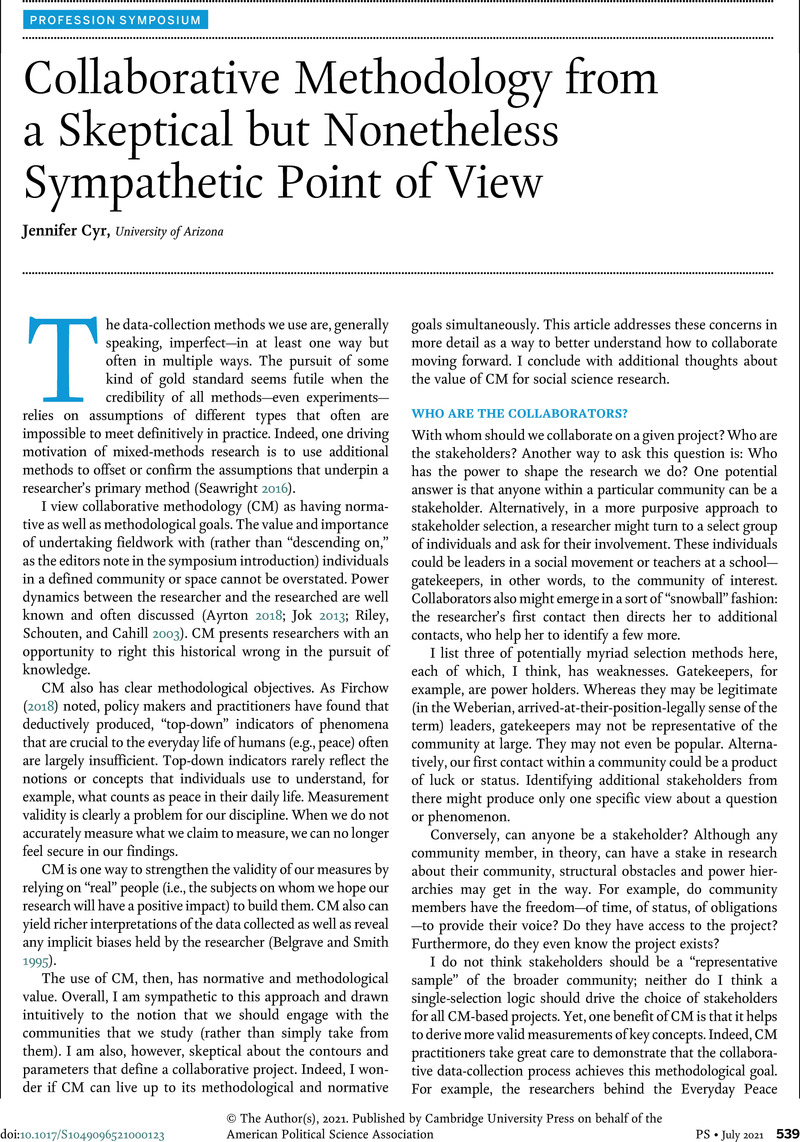Article contents
Collaborative Methodology from a Skeptical but Nonetheless Sympathetic Point of View
Published online by Cambridge University Press: 19 April 2021
Abstract

- Type
- Quantitative and Qualitative Collaborative Methodologies
- Information
- Copyright
- © The Author(s), 2021. Published by Cambridge University Press on behalf of the American Political Science Association
References
REFERENCES
- 2
- Cited by




